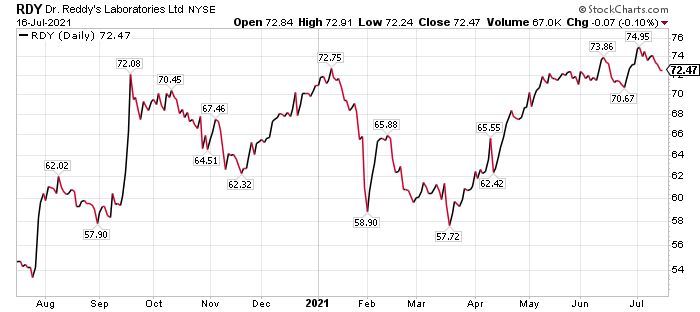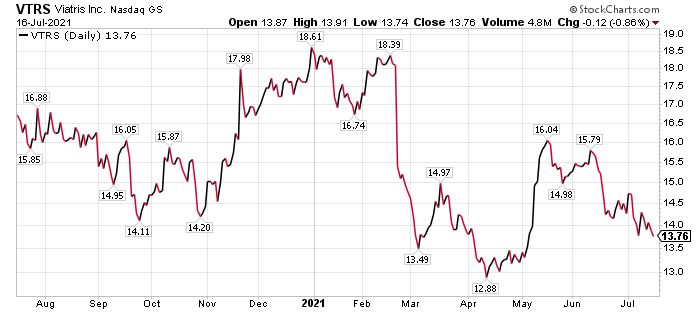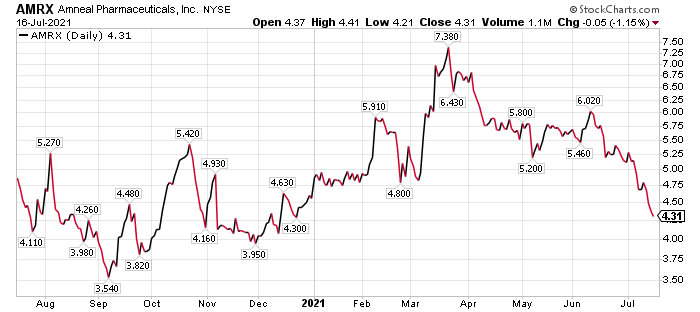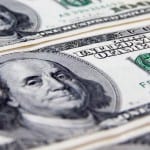Two Dividend-Paying Generic Pharmaceutical Stocks to Buy for Income
By: Paul Dykewicz,

Two dividend paying generic pharmaceutical stocks to buy for income highlight companies arguably near the top of that sector.
The two dividend-paying generic pharmaceutical stocks to buy are especially appealing because they can produce further growth organically and through acquisitions. One trade-off is that the two dividend-paying generic pharmaceutical stocks lack the blockbuster potential of companies that launch promising new drugs aimed at huge potential markets that could cause their share prices to soar.
One of the two dividend-paying generic pharmaceutical manufacturers to buy is from the generic drug hotbed of India, while the other is from the United States. Dr. Reddy’s Laboratories, based in India, may have one of the most recognized brands in the generic industry because it was founded and named after Kallam Anji Reddy, PhD, who earned his doctorate in Chemical Engineering from India’s National Chemical Laboratory.

Source: Stock Rover. Click here to sign up for a free two-week trial.
For investors looking to gain exposure to generic pharmaceutical companies, consider India, which has become a “global powerhouse” in the industry, said Bob Carlson, leader of the Retirement Watch investment newsletter.

Pension fund and Retirement Watch leader Bob Carlson answers questions from Paul Dykewicz.
Dr. Reddy’s Laboratories Heads Two Dividend-paying Generic Pharmaceutical Stocks to Buy
Among India’s top generic drug stocks for investors are Dr. Reddy’s Laboratories (NYSE:RDY), Sun Pharmaceutical industries (524715.India), Divi’s Laboratories (532488.India) and Cipla (500087.India). However, the generic sector of the pharmaceutical industry has had problems, Carlson cautioned.
The industry has been under fire for overpricing generic drugs, Carlson continued. U.S. pharmacies and other buyers have consolidated further than in the past and are negotiating reduced prices with the generic drug makers as the sector has faced several government investigations, he added.
In its fourth-quarter 6-K document filed with the U.S. Securities and Exchange Commission (SEC), Dr. Reddy’s Laboratories reported that it is involved in disputes, lawsuits, claims, governmental and/or regulatory inspections, inquiries, investigations and proceedings, including patent and commercial matters that arise from time to time in the “ordinary course of business.” Most of the claims involve “complex issues” that are subject to uncertainties and the probability of a loss, the company added.
Dr. Reddy’s Headlines Two Dividend-paying Generic Pharmaceutical Stocks to Buy
However, Dr. Reddy’s rising share price since the end of 2020 shows that the stock’s fortunes have not succumbed to those risks. Aside from manufacturing generic pharmaceuticals, Dr. Reddy partnered with the Russian Direct Investment Fund on clinical trials and distribution of Sputnik V COVID-19 vaccine in India. Upon regulatory approval in India, RDIF agreed to supply Dr. Reddy’s with 100 million doses of the vaccine that is based on a well-studied human adenoviral vector platform to provide proven safety and to complete clinical trials to show its efficacy against COVID-19, the company announced.
Carlson commented that the coronavirus pandemic created supply shortages of compounds used to manufacture generic pharmaceuticals. There are no U.S.-based locations that produce the compounds, which put American generic drug manufacturers at a disadvantage to those in India and China, he added.
A potential problem for the India-based companies is that as the pandemic wanes, the U.S. Food and Drug Administration (FDA) will launch more extensive examinations of the factories in India than has been the case the last 18 months or so, Carlson said.
Two Dividend-paying Generic Pharmaceutical Stocks to Buy Offer Diversified Revenues
Dr. Reddy’s Laboratories operates three core segments: Pharmaceutical Services and Active Ingredients, Global Generics and Proprietary Products. Its management described the company’s strengths as Chemical Synthesis, Formulation Development and Manufacturing; Clinical and Regulatory expertise; and robust global supply chain and strategic networks.
Analysts at Barclays PLC upgraded its rating of Dr. Reddy’s Laboratories on Feb. 2 to “overweight” from “equal weight” due to the company’s planned launch of its Sputnik vaccine. The heightened rating also included an increased price target of $70.00, up from $56.00. The stock subsequently showed those projections were conservative when the share price closed at $73.51 on July 13.

Chart courtesy of www.StockCharts.com
U.S. Money Manager Picks One of Two Dividend-paying Pharmaceutical Stocks to Buy
“Pure generic drug investment opportunities have become scarce over the years because success in that business is either predicated on moving up the industry food chain into proprietary products or reaching scale via consolidation,” said Hilary Kramer, who leads the GameChangers and Value Authority advisory services. “Either way, the number of companies focused on off-patent drugs shrinks over time as leaders move on and laggards get bought out.”

Paul Dykewicz conducts a pre-COVID-19 interview with Hilary Kramer, whose premium advisory services include IPO Edge, 2-Day Trader, Turbo Trader and the exclusive Inner Circle.
Investors focused on income probably are better off buying into a big pharmaceutical manufacturer like Viatris Inc. (NASDAQ:VTRS), a Canonsburg, Pennsylvania-based specialty and generics drug company that was formed by a merger between Pfizer’s (NYSE: PFE) Upjohn legacy brands business and Mylan, a generic and biosimilar drug manufacturer, Kramer said. Viatris has a “commanding franchise” and pays a 3% dividend as a bonus, Kramer counseled.
Viatris has fallen back in price so far this year, boosting the company’s dividend yield to 3.2%. It also lost money in 2020, so it is not without risk.

Chart courtesy of www.StockCharts.com
Amneal Offers Alternative to Two Dividend-paying Generic Pharmaceutical Stocks to Buy
“One pure play I’d recommend right now: Amneal Pharmaceuticals Inc. (NYSE:AMRX), which shot into the market spotlight with generic epinephrine pens,” Kramer said. “But even though that initial surge is flattening out now, the stock is still interesting here below $5. You’re effectively paying under six times earnings for long-term EPS expansion of around 12% a year, which is classically an attractive price for that kind of growth profile.”
Amneal Pharmaceuticals, based in Bridgewater, New Jersey, focuses on the development, manufacture and distribution of generic and specialty drug products. The company announced earlier in 2021 that the Food and Drug Administration (FDA) has accepted the Biologics License Application (BLA) for its Bevacizumab, with a standard review goal date of second-quarter 2022, according to the BsUFA (Biosimilar User Fee Act).

Chart courtesy of www.StockCharts.com
On April 5, Amneal completed its previously announced purchase of a 98% interest in Kashiv Specialty Pharmaceuticals, LLC. Kashiv Specialty Pharmaceuticals focused on the development of complex generics, innovative drug delivery platforms and novel 505(b)(2) drugs.
Funds and Two Dividend-paying Generic Pharmaceutical Stocks to Buy Offer Income
Biotechnology stocks and funds have been doing well recently, and that’s likely to continue, Carlson said. Companies keep announcing breakthroughs, and a number of biotech companies are going public, he added.
It is not easy to identify the top stocks in the sector to buy. A diversified exchange-traded fund (ETF) could help many investors. But even that is difficult, because of differences in the stocks held by leading ETFs. Investors seeking alternatives to the two dividend-paying pharmaceutical stocks to buy can purchase shares directly in the two top biotech ETFs.
IBB Rose More Than 25% in Both 2019 and 2020
iShares Biotechnology (IBB) aims to track the NASDAQ Biotechnology Index, so it holds only stocks on the NASDAQ and that are classified as either biotechnology or pharmaceutical companies. This tends to be the more volatile of the two funds. Over some periods, its returns can be substantially higher or lower than funds.
IBB returned 25.21% in 2019, 26.01% in 2020 and 6.18% so far in 2021. Its dividend yield is just 0.1%.
XBI Carries Less Risk Than Two Dividend-paying Generic Pharmaceutical Stocks to Buy
The other fund is SPDR S&P Biotech (XBI), which tries to track the S&P Biotechnology Select Industry Index. The sector index is derived from a U.S. total market composite, so it is not limited to S&P 500 stocks. But the fund uses a sampling strategy to track the index instead of holding all the stocks. XBI tends to favor stocks with increased liquidity, so it does not own many small companies or those with limited trading volume.
Though it is less risky than IBB, XBI is more volatile than the market indexes and the health care sector. The fund returned 32.56% in 2019, 48.33% in 2020, but is down 10.52% so far in 2021.
The difficulty of categorizing stocks and funds in the sector is shown by Morningstar’s classification of both funds. IBB is in the Specialty-Technology category, while XBI is part of Specialty-Health.
IBB tends to hold larger capitalization companies than XBI. Despite their differences, Morningstar gives the two funds A correlation of 94%.
New Delta Variant of COVID-19 Spread
The increasingly transmissible Delta variant of COVID-19 has spread to almost every state in America, raising concerns among health officials about a surge in cases. Genetic variants of SARS-CoV-2 have been emerging and circulating around the world throughout the COVID-19 pandemic, according to the Centers for Disease Control and Prevention (CDC).
A variant has one or more mutations that differentiate it from other COVID-19 varieties in circulation. The Delta variant is expected to become the dominant coronavirus strain in the United States, the CDC director warned. With more than half the U.S. population not fully vaccinated, public health officials caution that a resurgence of COVID-19 cases may well occur this fall when many unvaccinated children return to school.
Progress in increasing the number of people vaccinated from COVID-19 lifts hope that new cases and deaths will keep falling. As of July 16, 185,424,899 people, or 55.9% of the U.S. population, have received at least one dose of a COVID-19 vaccine. Those fully vaccinated total 160,686,878 people, or 48.3%, of the U.S. population, according to the CDC.
The Food and Drug Administration recently approved a third COVID-19 vaccine, manufactured by Johnson & Johnson (NYSE:JNJ), which requires only one dose rather than two, as with the first two vaccine providers: Pfizer (NYSE:PFE) and Moderna (NASDAQ:MRNA).
COVID-19 cases worldwide have reached 189,441,350 and caused 4,073,985 deaths, as of July 16, according to Johns Hopkins University. U.S. COVID-19 cases totaled 34,051,383 and have led to 608,809 deaths. America has the dubious distinction as the country with the most COVID-19 cases and deaths.
The two dividend-paying generic pharmaceutical stocks allow investors to profit amid the pandemic. Rising COVID-19 vaccine availability, improving economic data and a recent $1.9 trillion federal stimulus package should help to lift the prices of the two dividend-paying generic pharmaceutical stocks to buy.







 Connect with Paul Dykewicz
Connect with Paul Dykewicz




